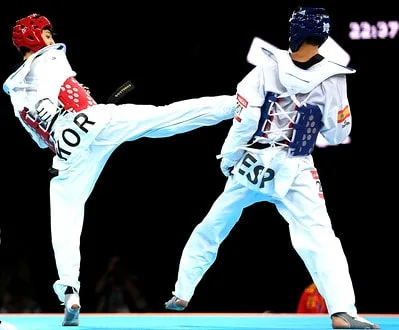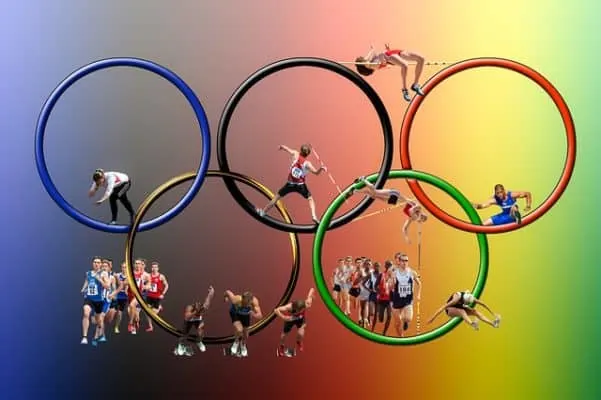
Brazilian Jiu-Jitsu (BJJ) has been increasing in popularity since its establishment in the 1920’s. There are many tournaments and championships around the world each year and it even made its debut in the Asian Games in 2018. This raises the question of whether or not BJJ is also an Olympic sport.
Brazilian Jiu-Jitsu is currently not an Olympic sport. To qualify, it will need to be represented by an independent non-profit international organization, adopt worldwide competition standards that are approved by the Olympic Committee and maintain Olympic-standard anti-doping regulations.
This article will discuss in more detail why BJJ is not an Olympic sport and what might be holding it back from becoming one. It will also touch on why other martial arts have been allowed to compete, as well as when BJJ might be included.
Why is BJJ Not an Olympic Sport?
The Olympic Games have already accepted Judo, Taekwondo and Karate into the program, so the question stands why the International Olympic Committee (IOC) have not accepted BJJ. There are three main reasons, which I will explain.
There is No Official Governing Body
The IOC requires that the governing body of the sport apply for admittance into the Olympic Games and establish their eligibility. To date, no international organization has been successful in this application and, therefore, Jiu-Jitsu still is not an Olympic sport.
There are many different organizations that oversee Jiu-Jitsu training and tournaments around the world that could serve to be the governing body of BJJ. The International Brazilian Jiu-Jitsu Federation (IBJJF) is just one of these organizations, and is one of the most noteworthy.
The IBJJF hosts several championships, both local and worldwide, outlines set rules for the sport and oversees over 1,000 academies across the world. This federation was also created by Carlos Gracie Jr., son of one of the founding fathers of Gracie Jiu-Jitsu.
However, other notable Jiu-Jitsu organisations include, but are not limited to:
- Sport Jiu-Jitsu International Federation (SJJIF)
- Ju-Jitsu International Federation (JJIF)
- Abu Dhabi Combat Club (ADCC)
- UAE Jiu-Jitsu Federation (UAEJJF)
The UAEJJF, in particular, applied to represent Jiu-Jitsu in the 2024 Paris Olympic Games, but was unsuccessful. One mandate of the IOC is that all international federations involved in the Olympic Games must be non-government organizations. With its close relationship to the UAE government, this is something that will always work against the UAEJJF.
Until an eligible international federation applies to represent the sport of Jiu-Jitsu in the Olympic Games, it will not be considered for the program.
Rules Have Not Been Standardised
Among the many federations that oversee JJ/BJJ, the rules of each competition are outlined by the individual organizations and are therefore open to variation. They are also evolving with time as the sport becomes more popular, resulting in constant updates to these rules.
In order to become an Olympic sport, Jiu-Jitsu must have an agreed-upon set of rules to govern the competition. These rules will also be subject to change by the IOC to suit their purposes, as was the case with Judo. Over time, Judo has become much more regulated, such as prohibiting leg locks and limiting groundwork.
In addition to this, BJJ is a sport that not every spectator can understand and appreciate. For example, some positions of control will get you points while others won’t. In the IBJJF rules, you can earn points if you have someone in Mount, but you won’t get any points if you have them in Side-Control. These intricacies can make it difficult for a non-trained spectator to appreciate, making it less appealing to the masses.
It is also common practice in BJJ to stall the fight in order to accumulate more points. This is something that would be considered boring in the eyes of the IOC, who want every sport to increase the value of the Olympic Games.
Even World Champion Andre Galvao acknowledged that only the No-Gi version of the sport would be suitable for the Olympics. The Gi is the official uniform of Jiu-Jitsu, but makes it easier for competitors to stall and slow the pace of the fight for more points.
If the rules of BJJ are not entertaining for the masses, it will be difficult to be accepted into the Olympics.
Infrequent Drug Testing
It is only recently that drug-testing has become more regulated in BJJ competitions. Organizations such as the IBJJF have now partnered with USADA (U.S. Anti-Doping Agency) to help keep the competition fair.
Prior to this, competitions were not regulated, allowing doping to go undetected and without penalty. The IOC take doping very seriously in their program, and therefore insist that any sports involved in the Olympic Games must be regulated to make the competition fair for all.
Most signatories of the World Anti-Doping Agency (WADA) adopted the anti-doping code in 2004, including the UWW (United World Wrestling) and the JJIF. Since then, younger organisations like the IBJJF have begun to adopt anti-doping schemes. The IBJJF has been contracting the WADA/USASA since 2013 to manage their anti-doping efforts.
Although IBJJF is not a signatory of the WADA/USADA, it is a step in the right direction. If other Jiu-Jitsu federations do the same, this increases the chances of BJJ becoming an Olympic sport.
RECOMMENDED FOR YOU: Do UFC Fighters Get Drug Tested? – Fully Explained Here
What’s Holding BJJ Back from Becoming an Official Olympic Sport?
It would appear that the three reasons mentioned above have held BJJ back from becoming an Olympic sport. However, as I mentioned, Jiu-Jitsu organizations are already taking action in implementing anti-doping schemes to make their competitions Olympic standard.
As for the standardization of the rules, this is something that may never change between the differing organizations such as IBJJF and UAEJJF. However, the fact that other martial arts have already been accepted into the Olympic Games proves that it can be done when working cooperatively with the IOC.
The key thing holding BJJ back from the Olympics is the lack of an international governing body. I mentioned earlier that the UAEJJF have shown interest in entering Jiu-Jitsu into the Olympic program, but were denied due to their eligibility.
The UWW is a possible candidate, having shown interest in Olympic-level Jiu-Jitsu and being the governing body of Olympic wrestling. If UWW were to work together with the IOC to make Jiu-Jitsu an appealing sport for Olympic spectators, the application will be more likely to succeed.
However, there is some controversy over whether or not BJJ should be entered into the Olympics, which is likely why some eligible organizations have been hesitant to put their name down.
One of the true BJJ legends, such as Renzo Gracie, believe that handing Jiu-Jitsu over to the Olympics just like how Judo did will make it cater only to elite athletes and will change the heart of the Jiu-Jitsu they know and love.
“We have a part of the jiu-jitsu community who wants to see [the sport in the Olympics] and actually the majority don’t want it. Because they believe we’d be treated like judo and in the end, a lot of people would lose their way of making a living like wrestling in the United States.”
Renzo Gracie
So it would appear that it is not so much the sport itself that is holding BJJ back from the Olympic stage, but the effort to preserve the nature of the sport.
Why is Taekwondo an Olympic Sport – but Not Brazilian Jiu-Jitsu?
Taekwondo, Karate and Judo are all Olympic sports. These martial arts were only included in the Olympic program after years of effort. These efforts began in 1974 for Taekwondo, which didn’t become a reality until the 2000 Sydney Olympic Games, where it made its Olympic debut.

Photo by the Republic of Korea
It is only recently that efforts have been made to make BJJ an Olympic sport, and even then it cannot qualify until it becomes tailored to the Olympic ideals by a non-government organization that is willing to represent it.
This was made possible for Taekwondo when the sport was admitted to the Amateur Athletic Union, which is known for establishing sports standards that align with the IOC.
If BJJ went down the same path and representatives persisted for as many years, then we may see BJJ become an Olympic sport in the future.
When is Jiu-Jitsu Going to be an Olympic Sport?
As I mentioned earlier, it was only after 26 years of effort that Taekwondo became an Olympic sport. Similarly, Judo also took decades to be accepted and Karate was only introduced to the Olympics for the 2020 Tokyo Olympics, nearly 50 years after the first attempts began.

At this stage, Jiu-Jitsu still seems to be in a stage where it is growing and adapting to the current culture, with the introduction of BJJ to many countries around the world and many adaptations developing. All these adaptations make it difficult to settle on one set standard for the Olympics.
In addition to this, if it takes as long as the other martial arts, it could be another decade or two before we see Jiu-Jitsu on the Olympic program.
According to Britannica.com, the IOC will now aim to introduce new sports to the Olympics only when others are discontinued. This is a way of managing the large scope of the Olympics. Therefore, another sport may have to be discontinued for Jiu-Jitsu to be considered. The fact that there are already three forms of martial arts, as well as wrestling, may make this less likely.
With all of this in mind, it doesn’t look like Jiu-Jitsu will become an Olympic sport in the near future.
